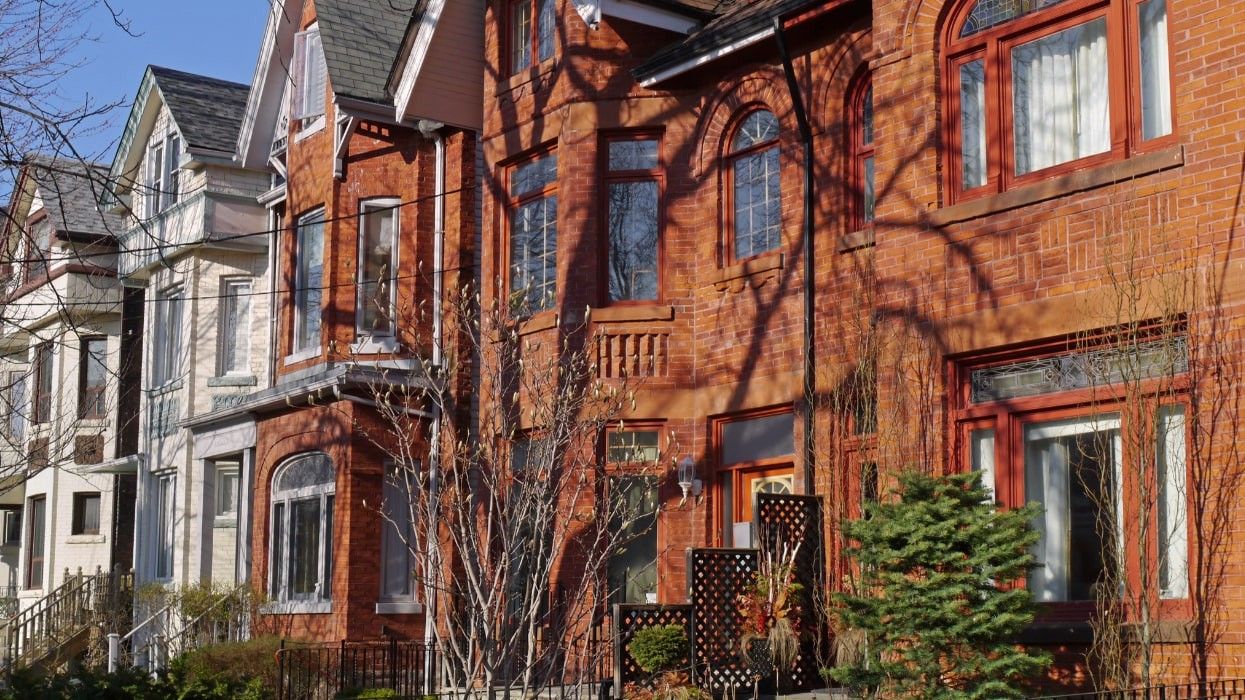Amidst high interest rates, mounting economic pressure, and worsening affordability, Canada’s housing markets are expected to be relatively muted in 2024.
The prediction is courtesy of RE/MAX’s 2024 Housing Market Outlook Report, which calls for the national average residential sale price to increase just 0.5% next year, as sales rise in over 60% of local markets.
"There are two main factors that will drive the market next year. First and foremost is the Bank of Canada and what their monetary policy will do. The other is affordability," Christopher Alexander, the President of RE/MAX Canada, told STOREYS.
Across Canada, the most sizeable price increases are expected to occur in Ontario markets, led by Windsor and and Sault Ste. Marie at 7.5%, and Oakville and Simcoe County at 7%.
The jump would bring Oakville’s average residential sale price to $1,806,740, making it the most expensive market in Canada and pushing Metro Vancouver — where prices are expected to rise 2% to $1,527,497 — into second place.
Minimal price increases of 2% to 4% are also predicted for Ottawa, London, Hamilton, York Region, and Burlington. Prices will remain flat in Mississauga and Brampton.
Ontario markets are also slated to see the largest price declines of 2024; an 8% drop to $712,971 is in the cards for Kitchener-Waterloo, and a 5% decline to $897,456 is expected in Durham Region. The average price in the Greater Toronto Area will fall 3% to $1,098,701 in 2024.
The price discrepancy across the province is due, as Alexander explains it, to cities that experienced significant run-ups in 2020 continuing to correct, and those that took a hit at the onset of the pandemic beginning to rebound.
Similarly muted price movement is predicted for Western Canada, with Nanaimo and Saskatoon — like aforementioned Vancouver — expected to see a 2% increase, and Victoria and Regina slated for a 2% decline. The east coast will see slightly more positive price appreciation, with the average residential price forecast to rise 3.5% in Saint John, 3.6% in Fredericton, and 5% in Moncton.
On the sales side, just five of the 38 regions included in RE/MAX’s report will see activity increase in excess of 10% in 2024. The most active markets are expected to be Brampton and Mississauga, where sales will soar 20%, while Fredericton is forecast to see sales decline 13.4% and Edmonton will experience a 5% drop.
"I don’t think we’re going to see real distress sales until 2025 if interest rates remain unchanged. But that will be key — what’s the Bank of Canada going to do [with interest rates], and how stringent will government policies be in helping consumers so they’re not forced to give up their homes?," Alexander said. "If those things come together, we won’t see that [huge] number of listings."
While conditions will vary across Canada, 42% of local markets are expected achieve or maintain balance in 2024, including Metro Vancouver, Regina, Mississauga, Hamilton, Burlington, Brampton, Quebec City, and St. John’s.
"In the big centres affordability is the main thing keeping buyers at bay. But the uncertainty and hope that interest rates are going to come down is also a factor," Alexander said. "There is an odd lack of buyer confidence."
Despite the current, and persistent, lack of affordability, murmurs of interest rate cuts in the new year may give buyers the nerve they need to get back into the market, much as the Bank of Canada’s temporary pause this past spring did.
"I’m hearing a lot of people say their clients are waiting for spring. It’s going to be interesting. I have a feeling that we may see a big rush with buying activity," Alexander said. "Housing is not a typical commodity. When you’re dealing with a basic need like shelter, you can only put your plans on hold for so long. I’m really curious to see how the spring plays out. It’s anyone’s guess."





















